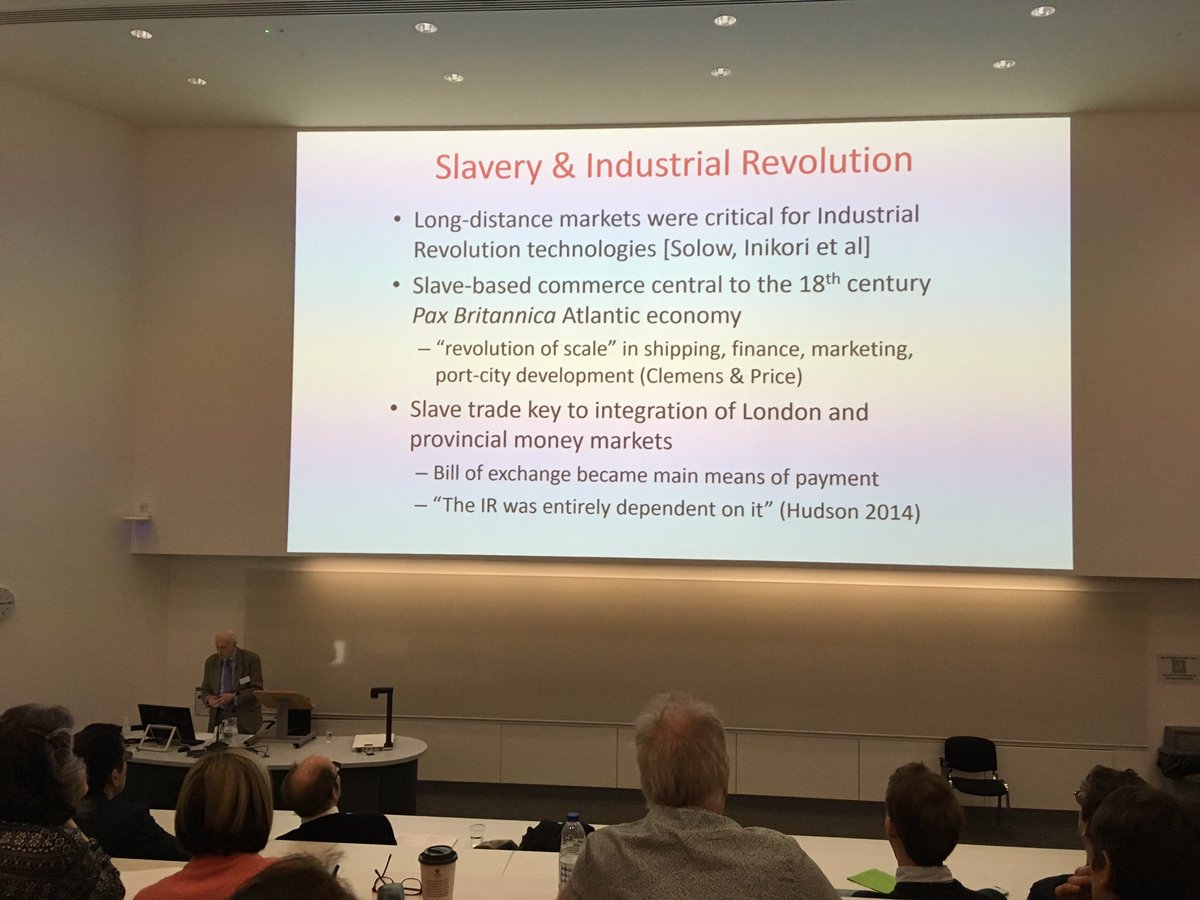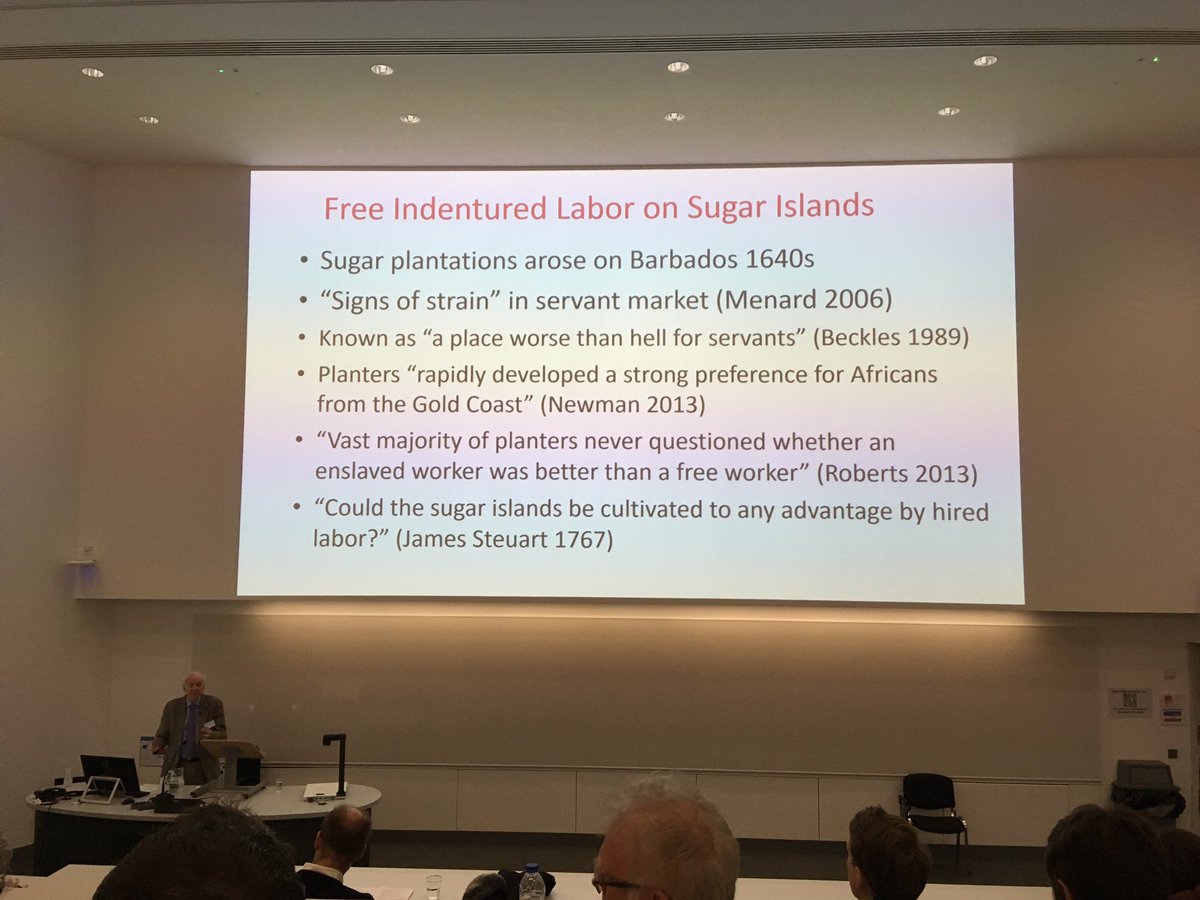
Tonight's evening seminar, given by Marie Stella Chiaruttini (@univienna) and entitled 'War, Debt and Constitution: Italy's Path to Nation-Building and Central Banking in the Nineteenth Century' is about to begin! #OxfordESH #Twitterstorians #EconHist
Italian unification had critical north-south dimensions which continues to inform political debate. The Kingdom was born in the north 

Northern and southern Italy were and remain economically divergent. There is a new quantitative literature on the regional development of the two economies 

Northerners paid more taxes than their southern neighbours at the time of unification — this made the imposition of the northern fiscal regime a big change for the south 

Eventually, the post-unification national bank became a big player in the south, but the north still dominated 

Did the national bank channel southern savings north, though? Probably not — evidence for credit discrimination scant 



• • •
Missing some Tweet in this thread? You can try to
force a refresh
























